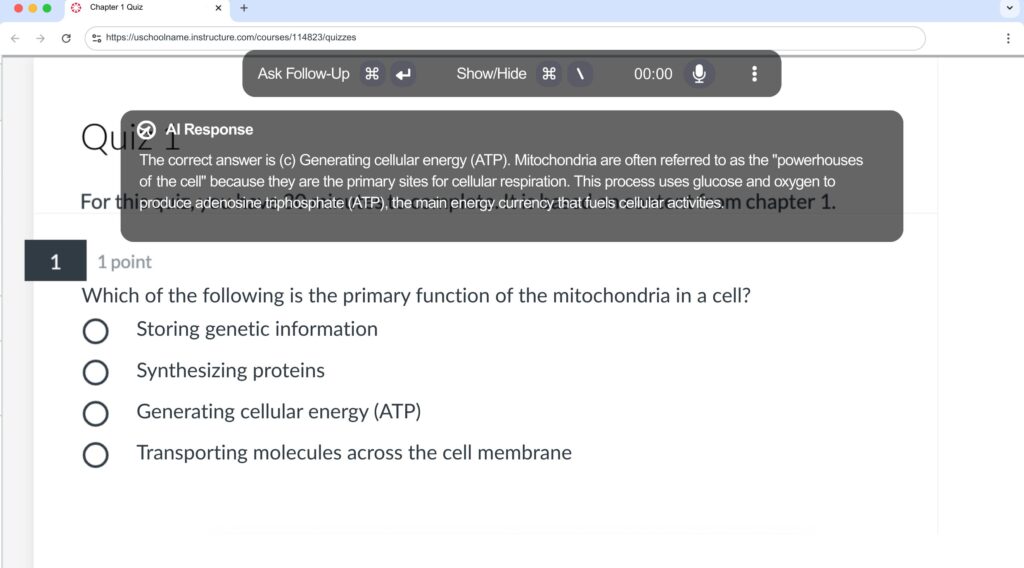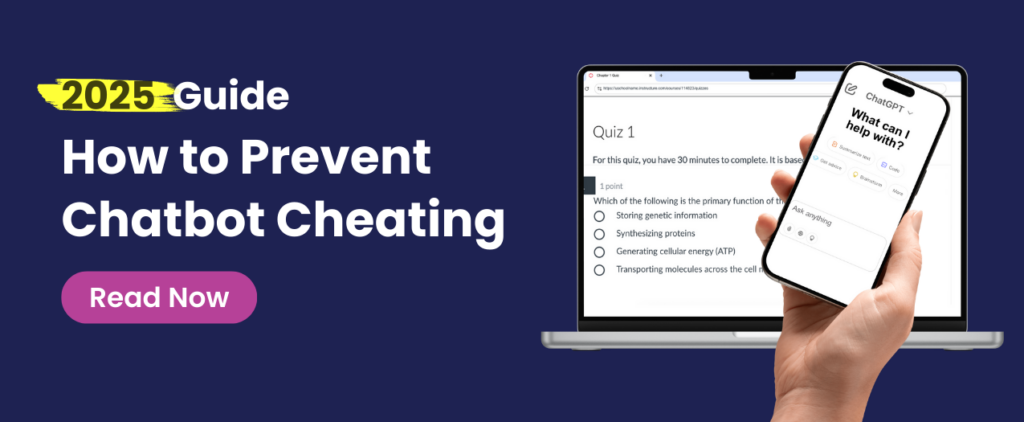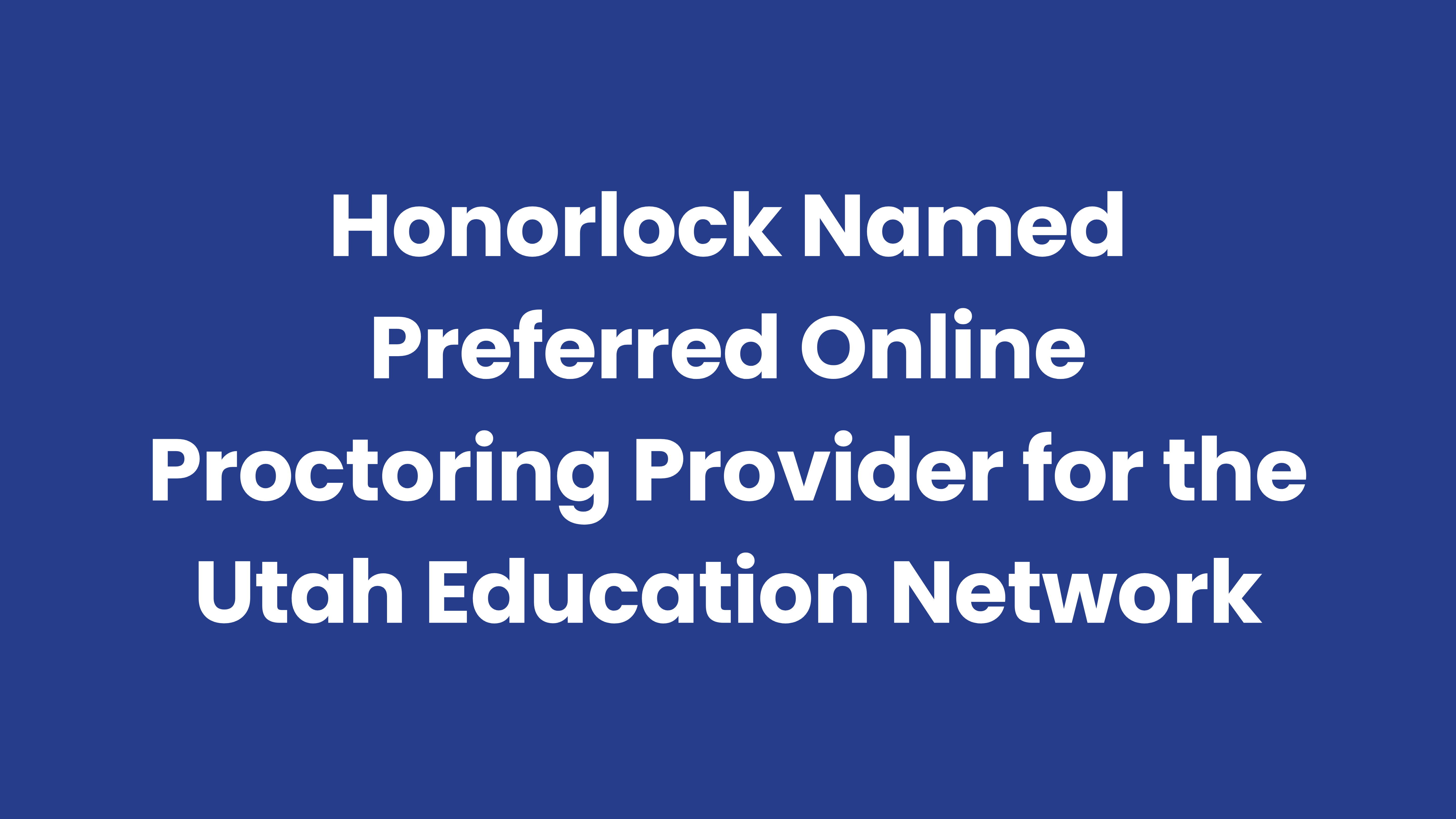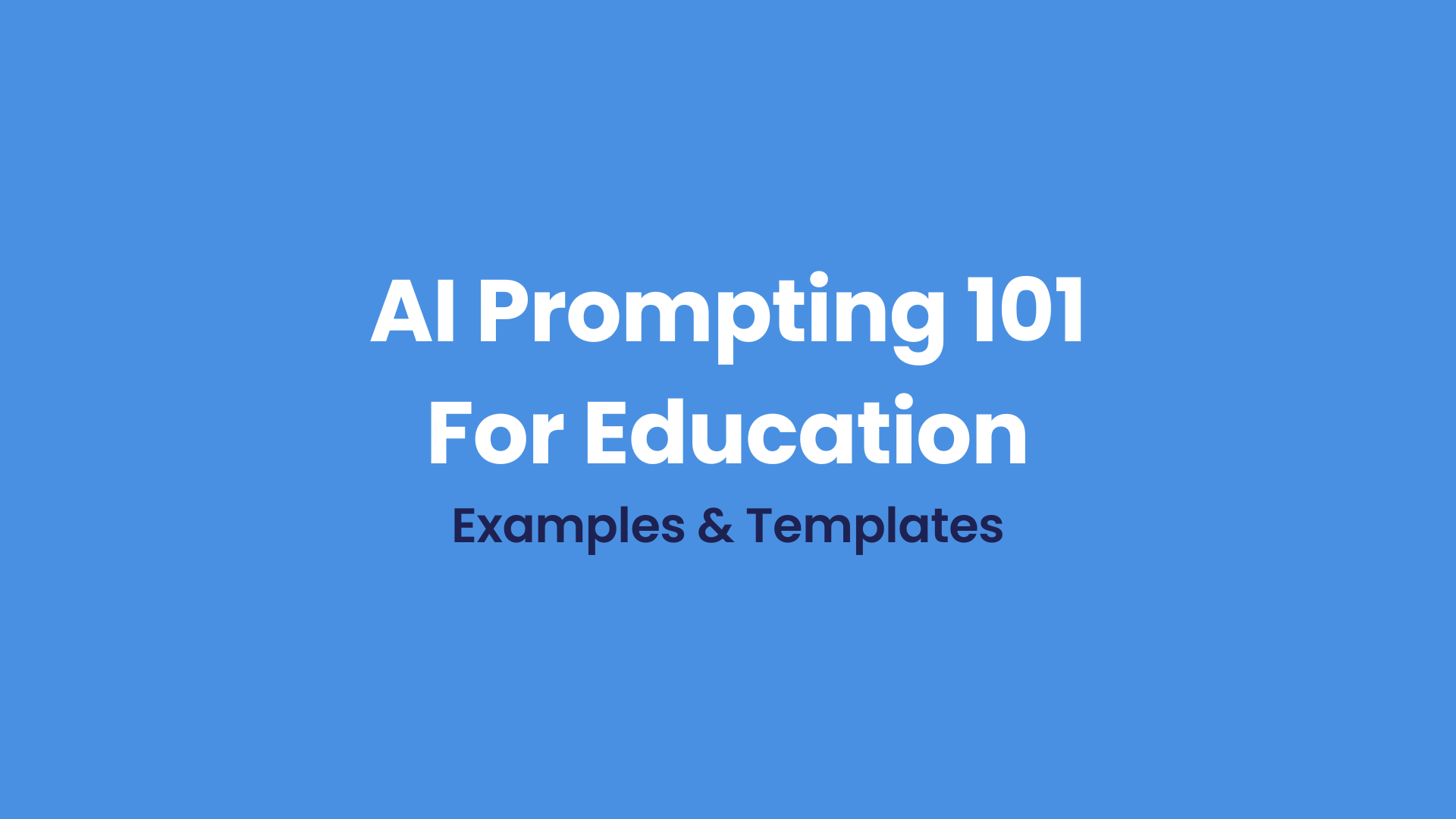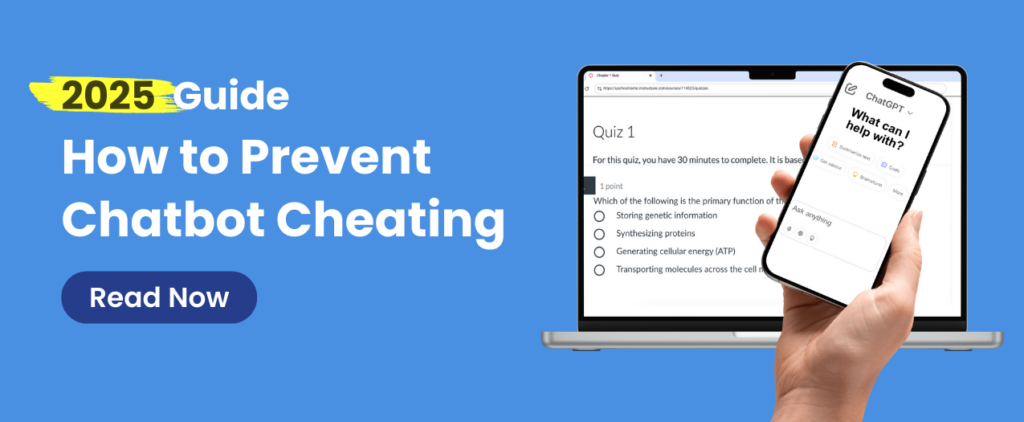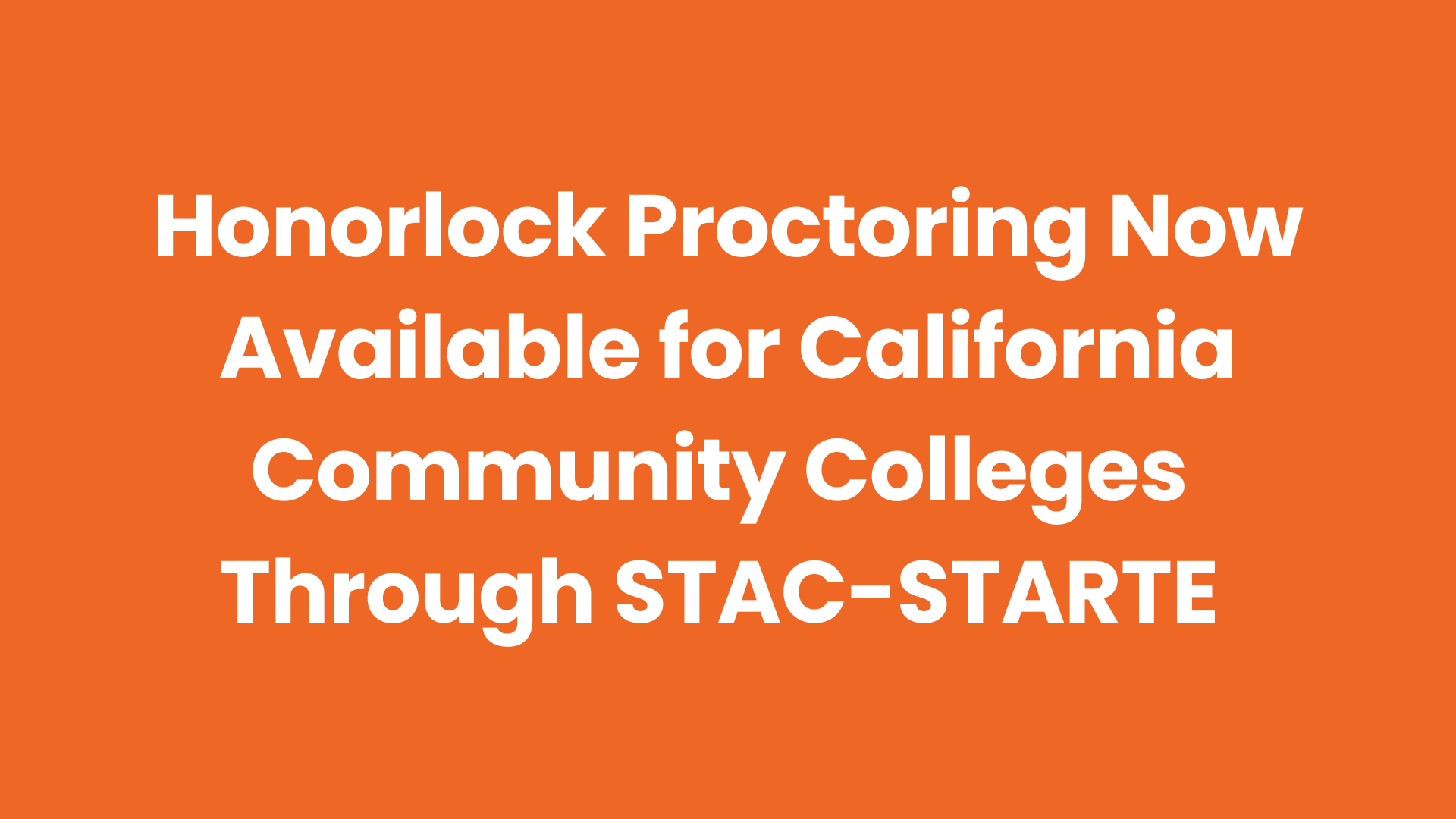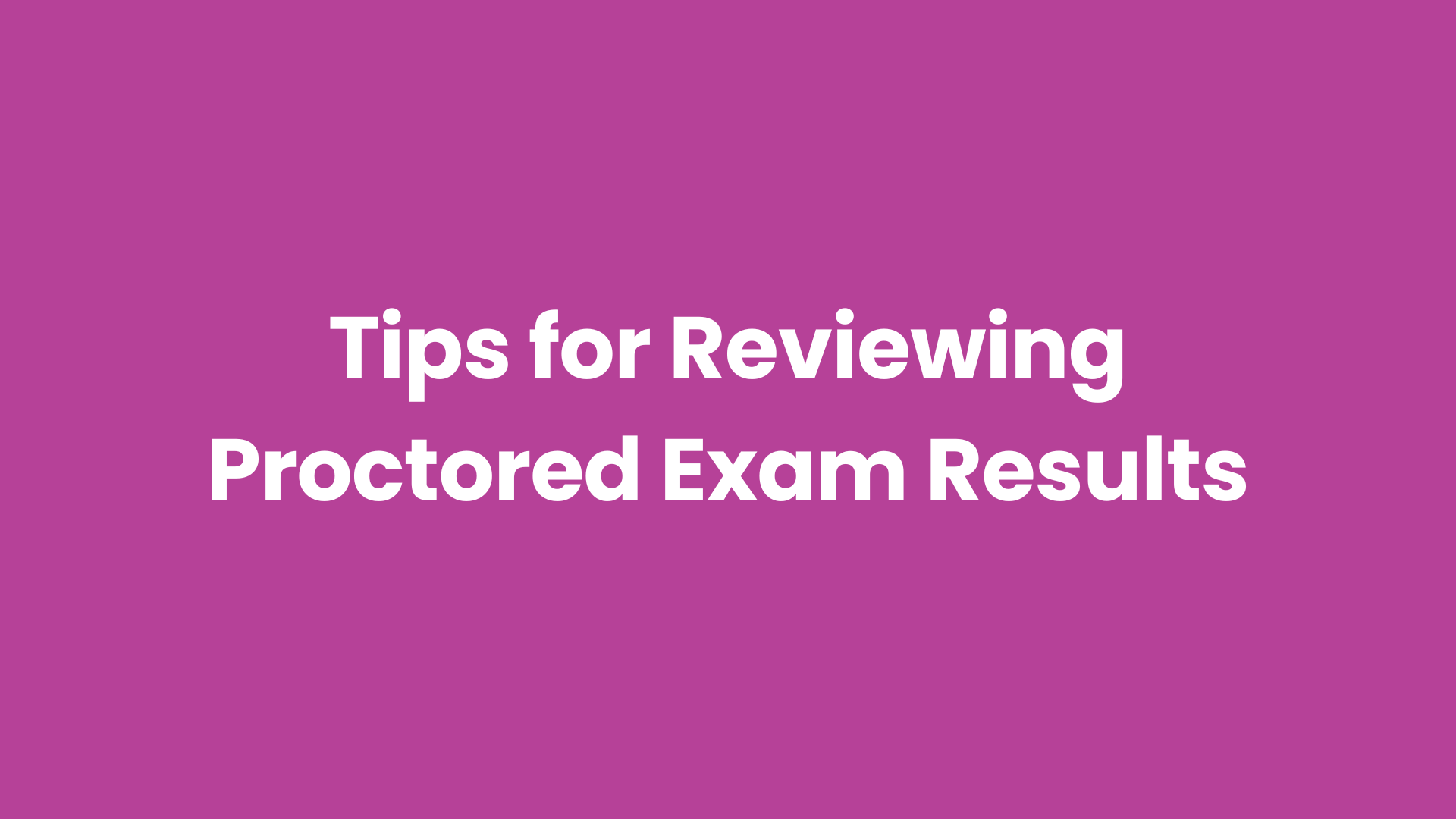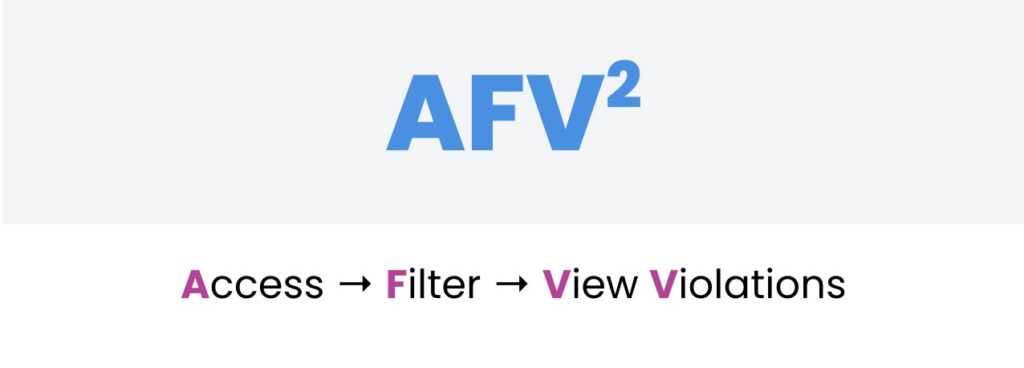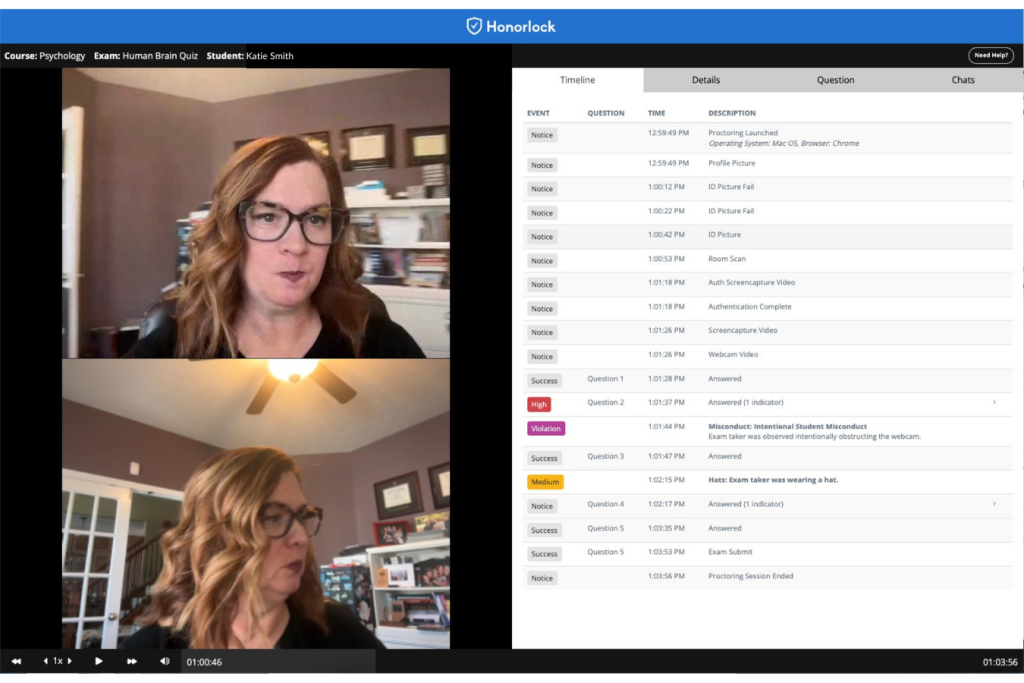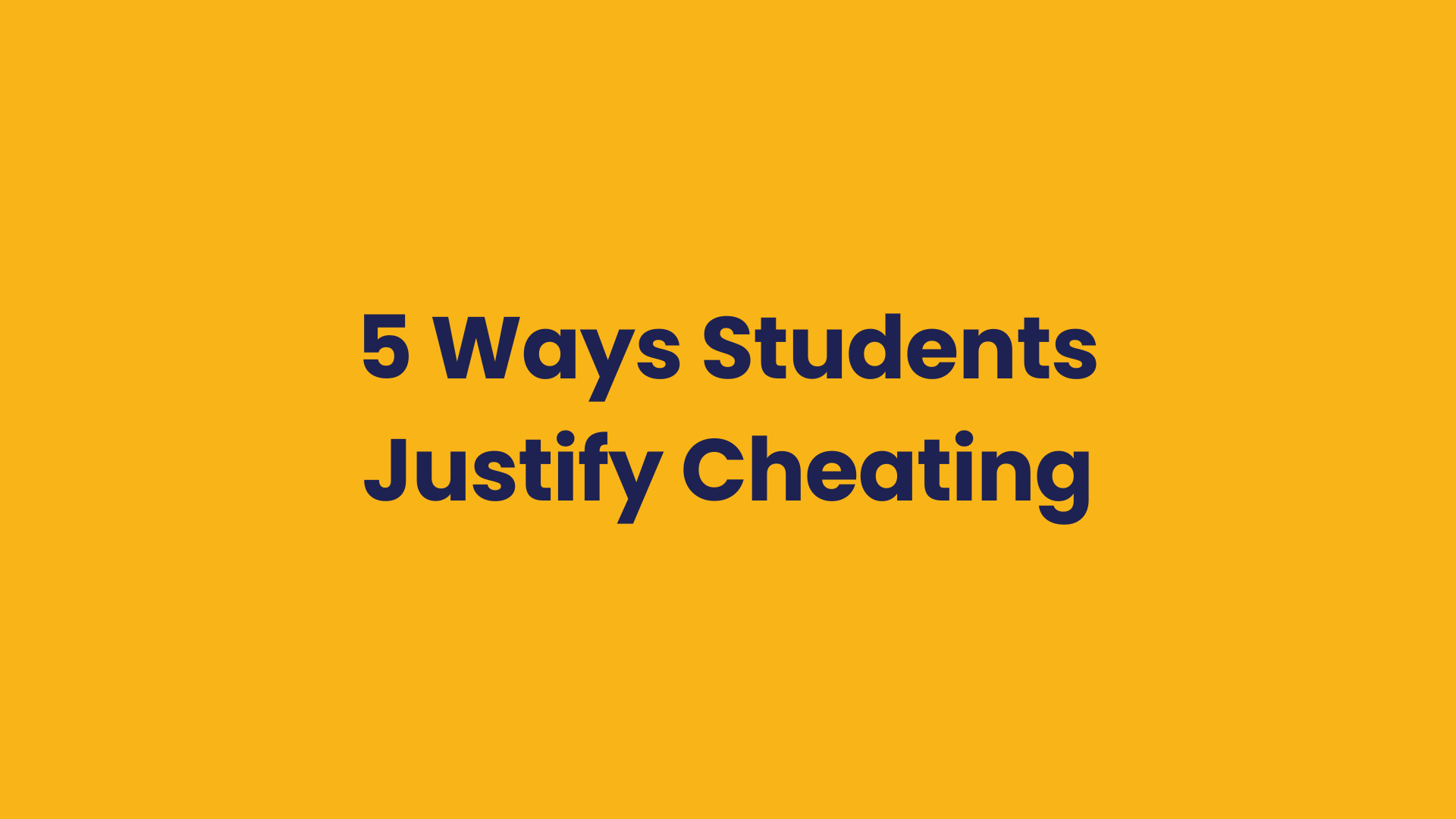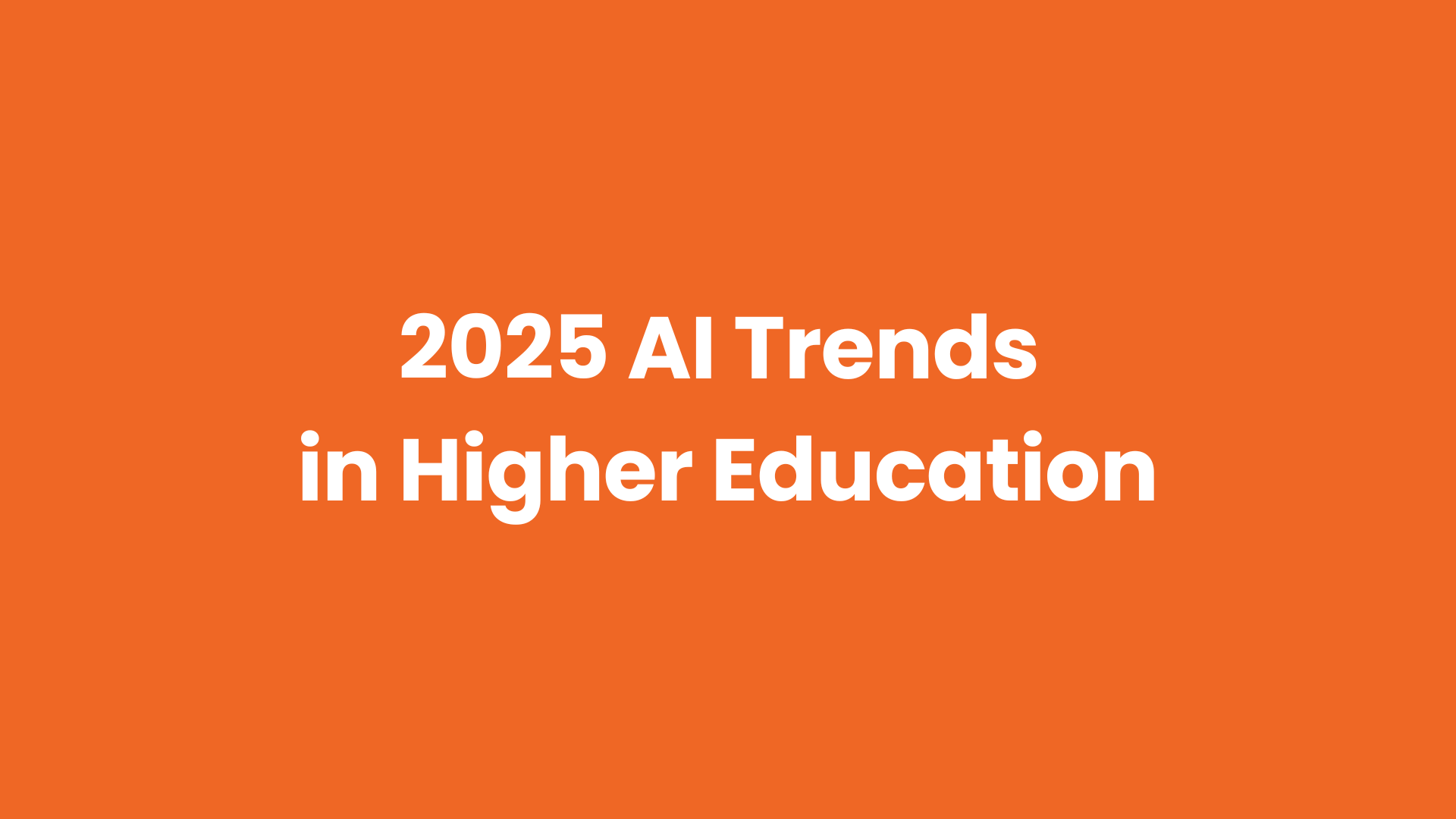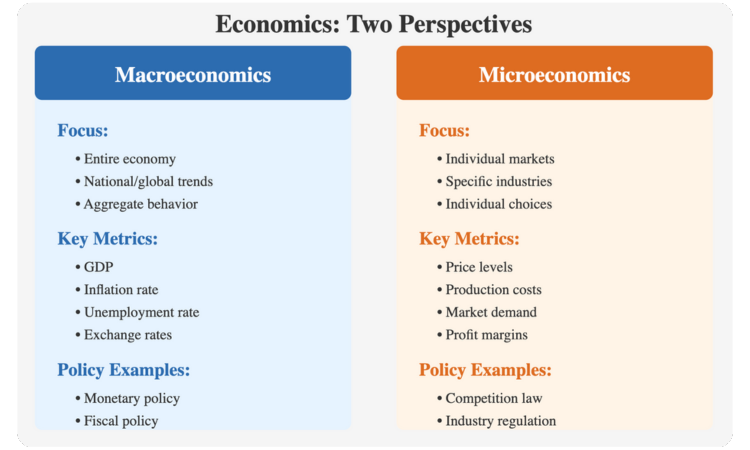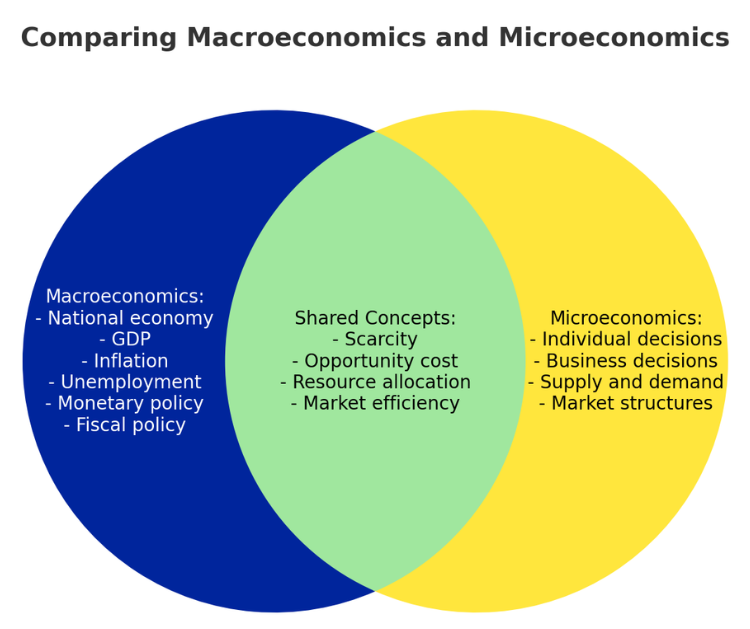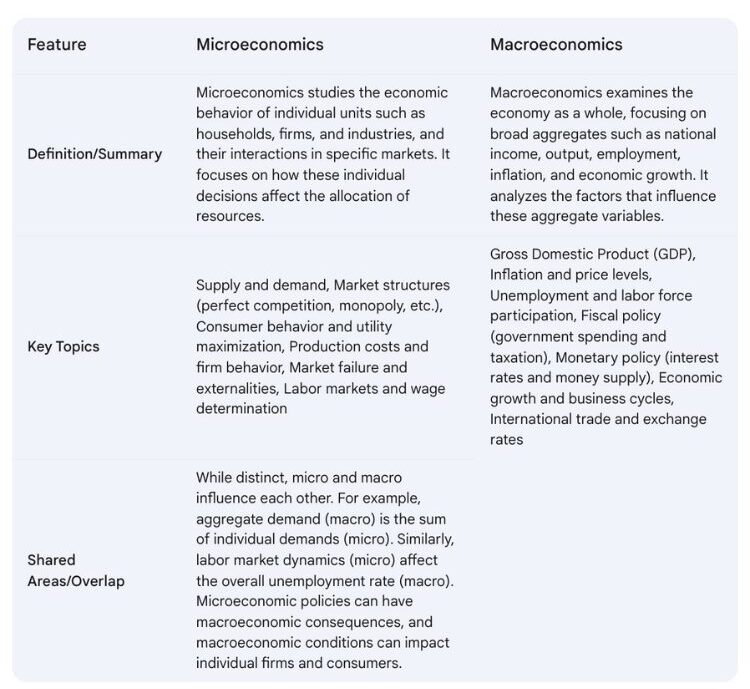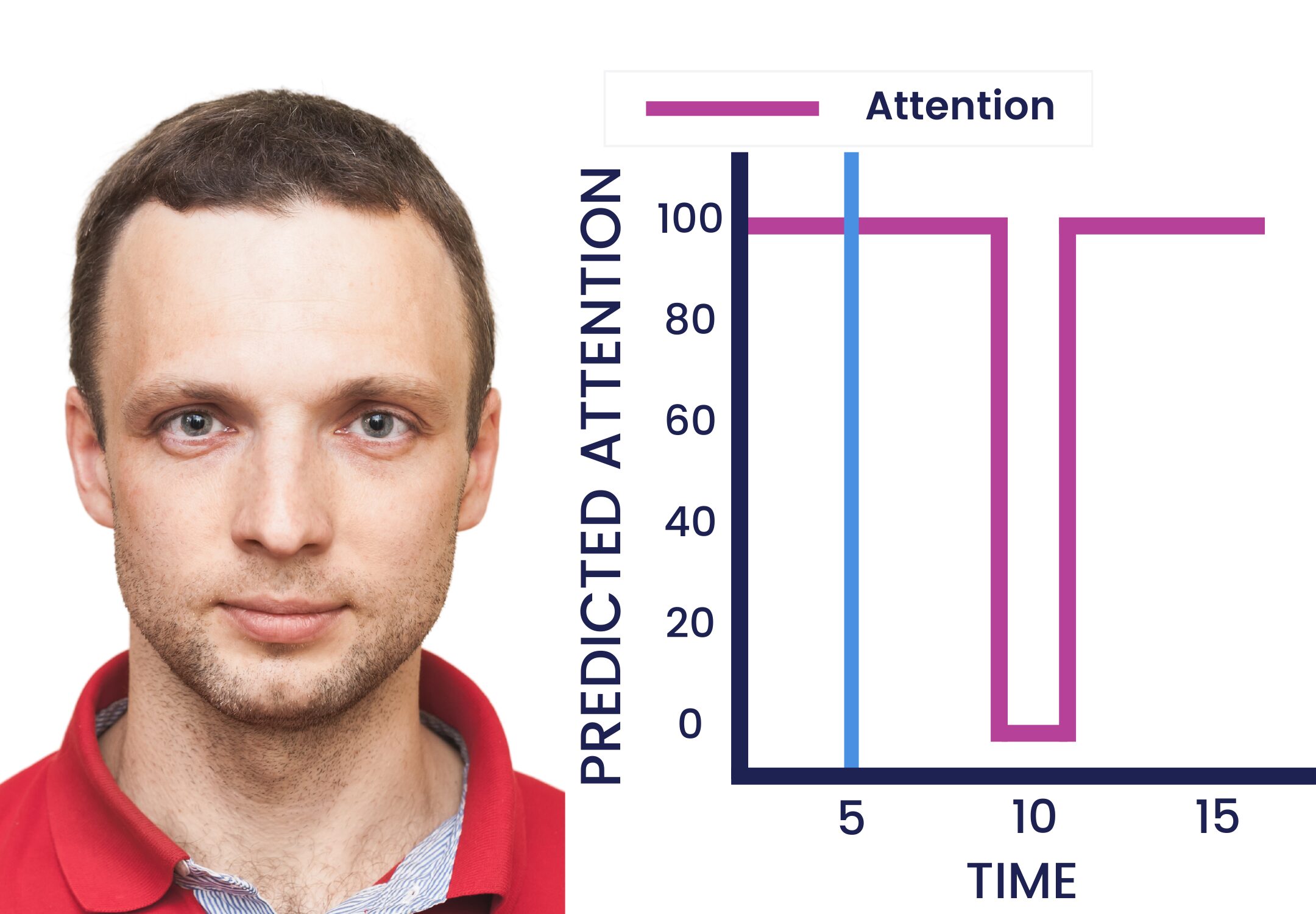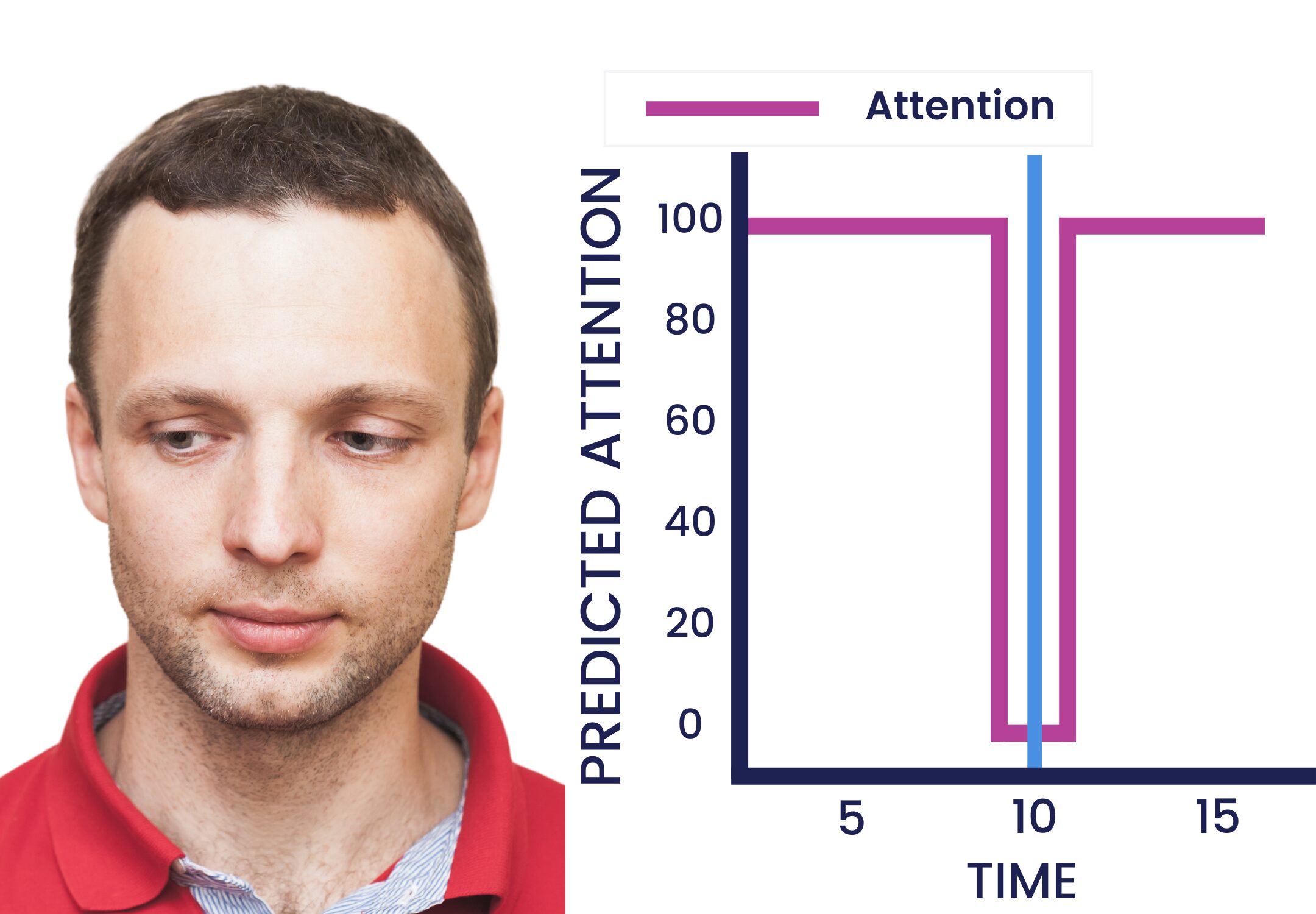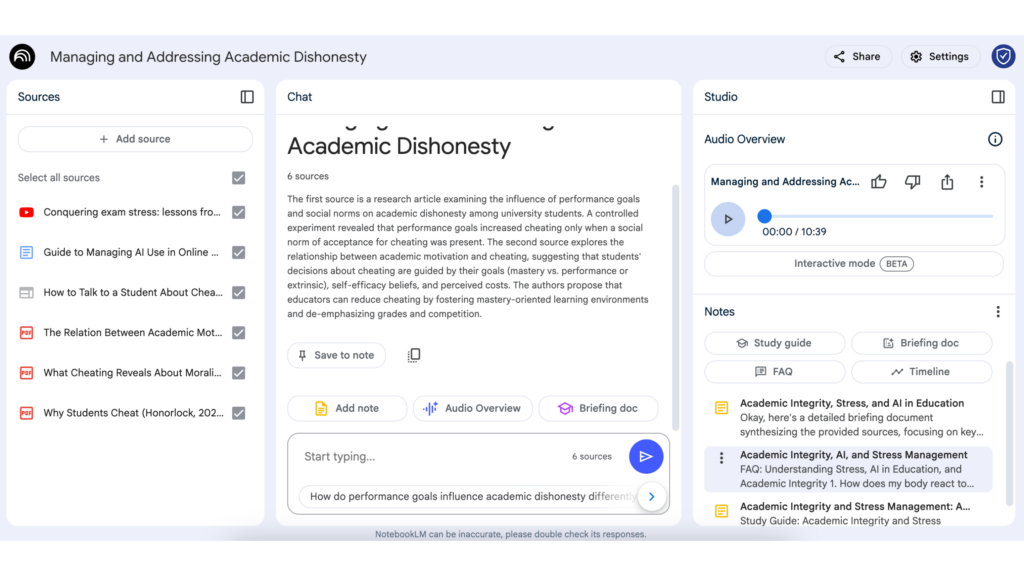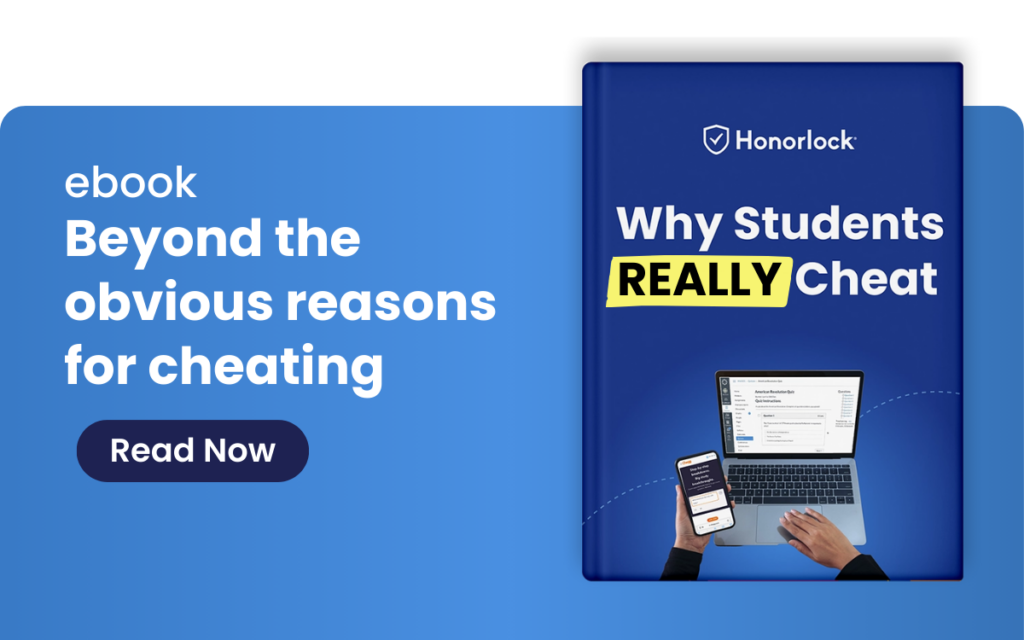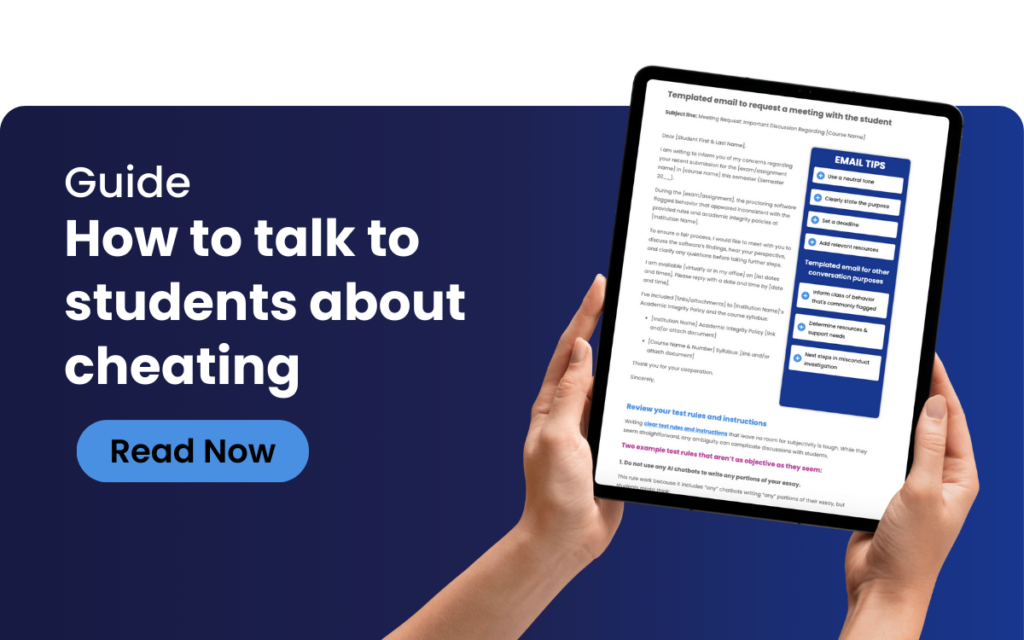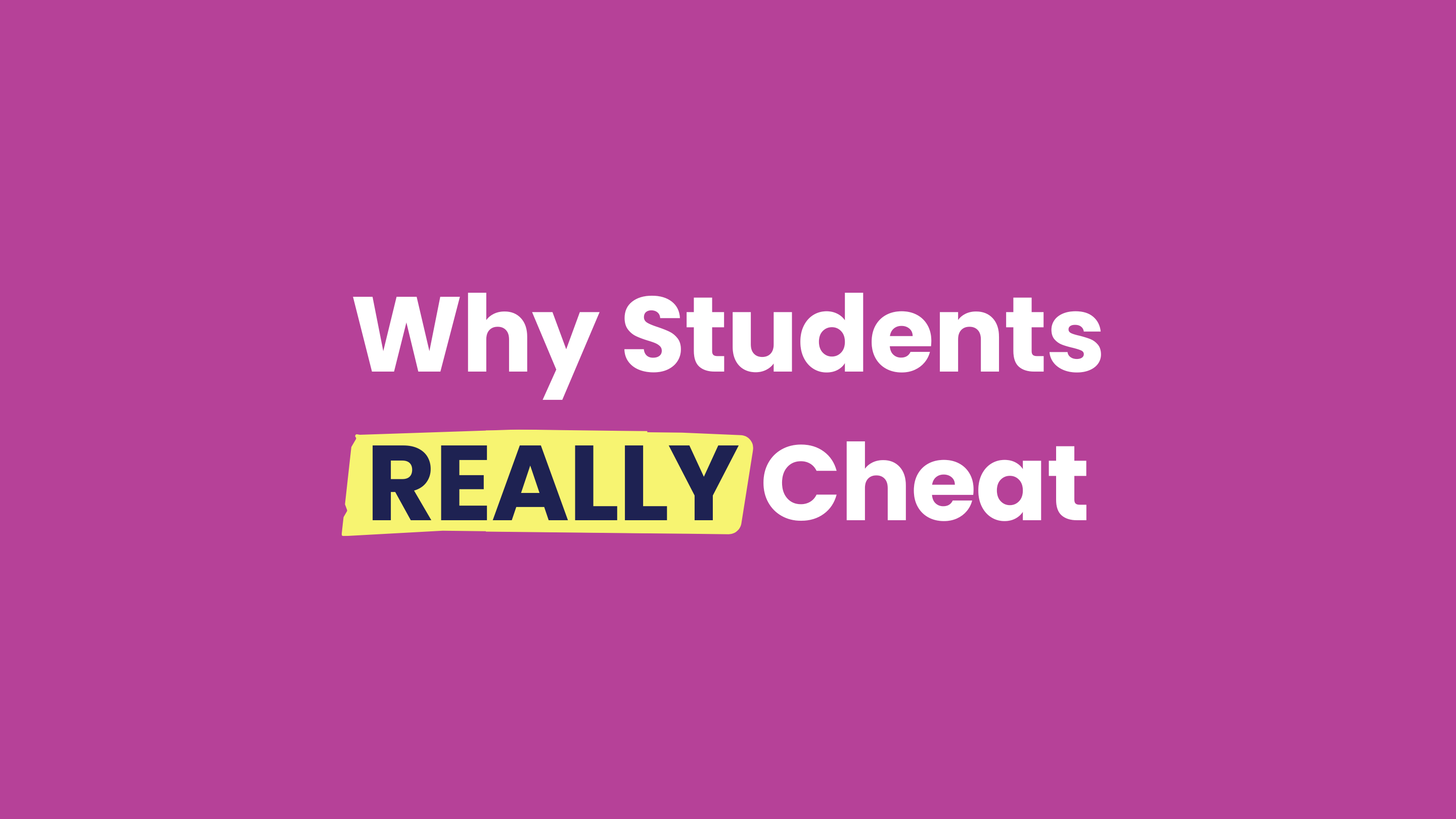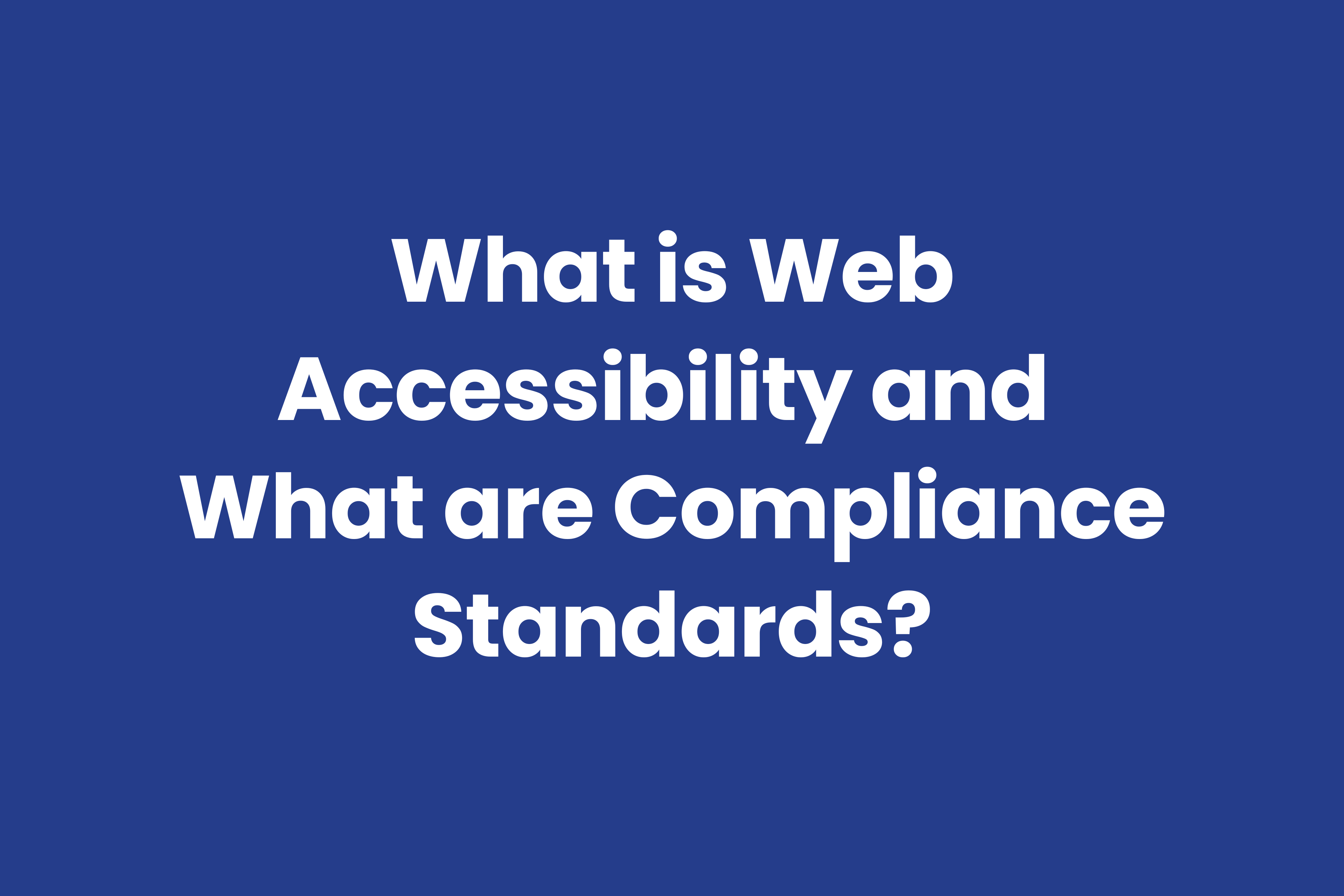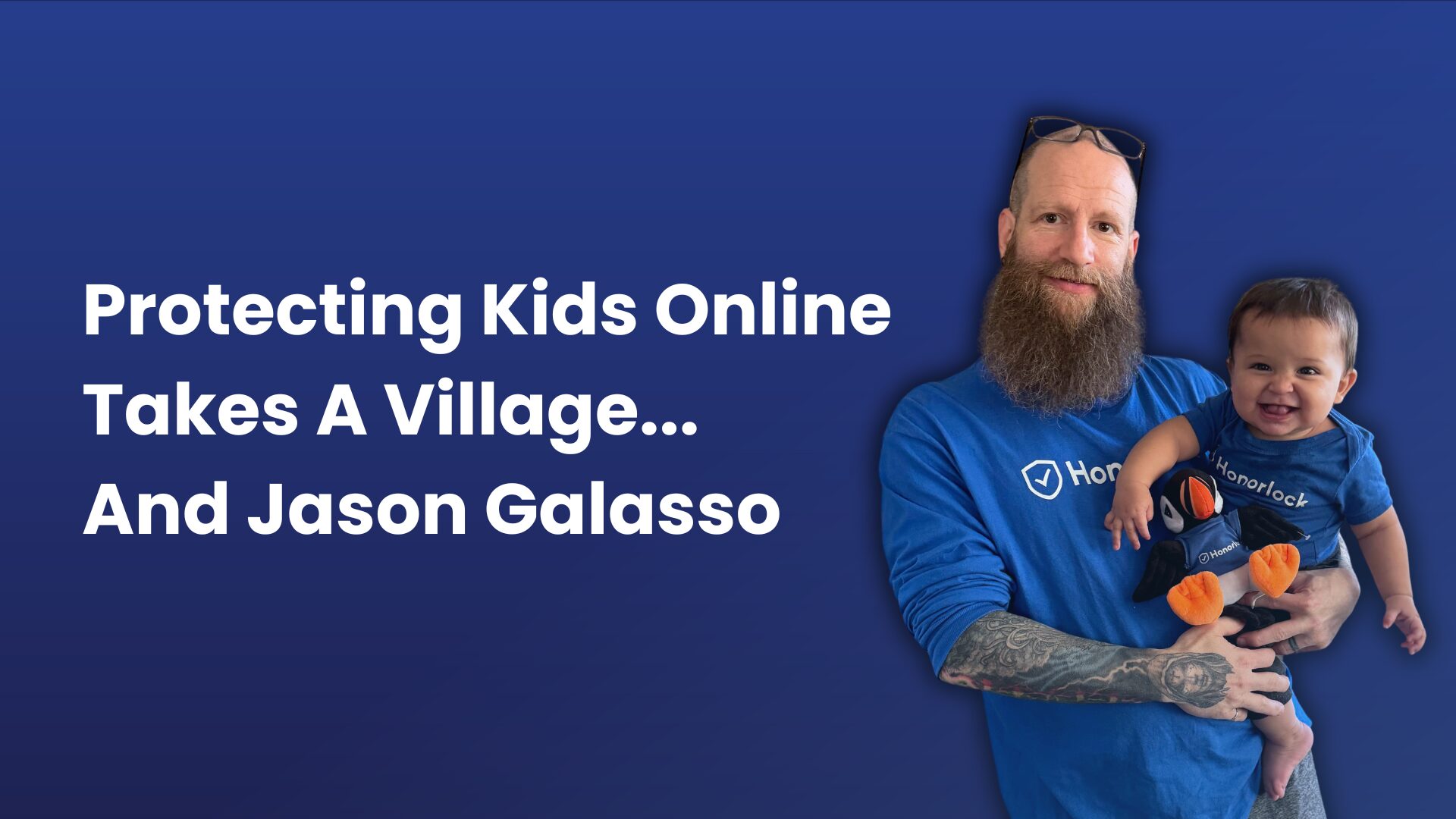Ababneh, K. I., Ahmed, K., & Dedousis, E. (2022). Predictors of cheating in online exams among business students during the Covid pandemic: Testing the theory of planned behavior. The International Journal of Management Education, 20(3), 100713. https://doi.org/10.1016/j.ijme.2022.100713
Alessio, H. M., Malay, N., Maurer, K., Bailer, A. J., & Rubin, B. (2017). Examining the Effect of Proctoring on Online Test Scores. Online Learning, 21(1). https://doi.org/10.24059/olj.v21i1.885
Alessio, H. M., Malay, N., Maurer, K., Bailer, A. J., & Rubin, B. (2018). Interaction of Proctoring and Student Major on Online Test Performance. The International Review of Research in Open and Distributed Learning, 19(5). https://doi.org/10.19173/irrodl.v19i5.3698
Anderman, E. M., & Koenka, A. C. (2017). The Relation Between Academic Motivation and Cheating. Theory Into Practice, 56(2), 95–102. https://doi.org/10.1080/00405841.2017.1308172
Anderman, E. M., & Won, S. (2019). Academic Cheating in Disliked Classes. Ethics & Behavior, 29(1), 1–22. https://doi.org/10.1080/10508422.2017.1373648
Bath, M., Hovde, P., George, E., Schulz, K., Larson, E., & Brunvatne, E. (2014). Academic integrity and community ties at a small, religious-affiliated liberal arts college. International Journal for Educational Integrity, 10(2), 31–43. https://doi.org/10.21913/IJEI.v10i2.1005
Burrus, R. T., McGoldrick, K., & Schuhmann, P. W. (2007). Self-reports of student cheating: Does a definition of cheating matter? The Journal of Economic Education, 38(1), 3–16. https://doi.org/10.3200/jece.38.1.3-17
Cantiello, J., & Geschke, R. H. (2024). Preventing Academic Dishonesty in Online Courses: Best Practices to Discourage Cheating. The Journal of Health Administration Education, 40(2), 205–230.
Carpenter, D. D., Harding, T. S., & Finelli, C. J. (n.d.). Using Research to Identify Academic Dishonesty Deterrents Among Engineering Undergraduates.
Cole, M. T., Swartz, L. B., & Shelley, D. J. (2014). Students’ Use of Technology in Learning Course Material: Is it Cheating? International Journal of Information and Communication Technology Education, 10(1), 35–48. https://doi.org/10.4018/ijicte.2014010104
Dahl, A., & Waltzer, T. (2024). A Canary Alive: What Cheating Reveals about Morality and Its Development. Human Development, 68(1), 6–25. https://doi.org/10.1159/000534638
Daffin Jr, L. W., & Jones, A. A. (2018). Comparing Student Performance on Proctored and Non-Proctored Exams in Online Psychology Courses. Online Learning (Newburyport, Mass.), 22(1), 130-. https://doi.org/10.24059/olj.v22i1.1079
Daumiller, M., & Janke, S. (2020). Effects of performance goals and social norms on academic dishonesty in a test. British Journal of Educational Psychology, 90(2), 537–559. https://doi.org/10.1111/bjep.12310
Dendir, S., & Maxwell, R. S. (2020). Cheating in online courses: Evidence from online proctoring. Computers in Human Behavior Reports, 2, 100033. https://doi.org/10.1016/j.chbr.2020.100033
Eshet, Y., Grinautsky, K., & Steinberger, P. (2024). To behave or not (un)ethically? The meditative effect of mindfulness on statistics anxiety and academic dishonesty moderated by risk aversion. International Journal for Educational Integrity, 20(1), 6–18. https://doi.org/10.1007/s40979-024-00151-w
Fatemi G, Saito E (2020) Unintentional plagiarism and academic integrity: the challenges and needs of postgraduate international students in Australia. J Furth High Educ 44(10):1305–1319. https://doi.org/10.1080/0309877X.2019.1683521
Forkuor, J. B., Amarteifio, J., Attoh, D. O., & Buari, M. A. (2019). Students’ Perception of Cheating and the Best Time to Cheat During Examinations. The Urban Review, 51(3), 424–443. https://doi.org/10.1007/s11256-018-0491-8
Gibson, Y., & Kuhn, R. (2024). E-Proctoring Tools: Is It a Necessary Inconvenience. Journal of Higher Education Theory and Practice, 24(7), 24–35. https://doi.org/10.33423/jhetp.v24i7.7088
Han, S., Nikou, S., & Yilma Ayele, W. (2023). Digital proctoring in higher education: a systematic literature review. International Journal of Educational Management, 38(1), 265–285. https://doi.org/10.1108/IJEM-12-2022-0522
Herrick, S. J., Lu, W., & Bullock, D. (2020). Postsecondary Students With Disabilities: Predictors of Adaptation to College. Journal of College Student Retention: Research, Theory & Practice, 24(2), 603–624. https://doi.org/10.1177/1521025120941011
Howard, D. (2020). Comparison of exam scores and time taken on exams between proctored oncampus and unproctored online students. Online Learning, 24(4), 204-228. https://doi.org/10.24059/olj.v24i4.2148
Hylton, K., Levy, Y., & Dringus, L. P. (2016). Utilizing webcam-based proctoring to deter misconduct in online exams. Computers and Education, 92–93, 53–63. https://doi.org/10.1016/j.compedu.2015.10.002
Janke, S., Rudert, S. C., Petersen, Ä., Fritz, T. M., & Daumiller, M. (2021). Cheating in the wake of COVID-19: How dangerous is ad-hoc online testing for academic integrity? Computers and Education Open, 2, 100055-.https://doi.org/10.1016/j.caeo.2021.100055
Johnson-Clements, T. P., Curtis, G. J., & Clare, J. (2024). Testing a Psychological Model of Post-Pandemic Academic Cheating. Journal of Academic Ethics. https://doi.org/10.1007/s10805-024-09561-4
Kalhori, Z. (2014). The Relationship between Teacher-student Rapport and Student’s Willingness to Cheat. Procedia, Social and Behavioral Sciences, 136, 153–158. https://doi.org/10.1016/j.sbspro.2014.05.306
Kasler, J., Sharabi-Nov, A., Shinwell, E. S., & Hen, M. (2023). Who cheats? Do prosocial values make a difference? International Journal for Educational Integrity, 19(1), 6–16. https://doi.org/10.1007/s40979-023-00128-1
Larkin, C., & Mintu-Wimsatt, A. (2015). Comparing cheating behaviors among graduate and undergraduate online business students. Journal of Higher Education Theory and Practice, 15(7), 54–62.
Lee, S. D., Kuncel, N. R., & Gau, J. (2020). Personality, Attitude, and Demographic Correlates of Academic Dishonesty: A Meta-Analysis. Psychological Bulletin, 146(11), 1042–1058. https://doi.org/10.1037/bul0000300
MacLeod, P. D., & Eaton, S. E. (2020). The Paradox of Faculty Attitudes toward Student Violations of Academic Integrity. Journal of Academic Ethics, 18(4), 347–362. https://doi.org/10.1007/s10805-020-09363-4
Malesky, A., Grist, C., Poovey, K., & Dennis, N. (2022). The Effects of Peer Influence, Honor Codes, and Personality Traits on Cheating Behavior in a University Setting. Ethics & Behavior, 32(1), 12–21. https://doi.org/10.1080/10508422.2020.1869006
Malizia, D. A., & Jameson, J. K. (2018). Hidden in plain view: The impact of mediation on the mediator and implications for conflict resolution education. Conflict Resolution Quarterly, 35(3), 301–318. https://doi.org/10.1002/crq.21212
McCabe, D. L. (1997). Classroom cheating among natural science and engineering majors. Science and Engineering Ethics, 3(4), 433–445. https://doi.org/10.1007/s11948-997-0046-y
McCabe, D. L. (2016). Cheating and honor: Lessons from a long-term research project. In T. Bretag (Ed.), Handbook of academic integrity (pp. 187–198). Singapore: Springer Singapore.
Morin, M., Alves, C., & De Champlain, A. (2022). The Show Must Go On: Lessons Learned from Using Remote Proctoring in a High-Stakes Medical Licensing Exam Program in Response to Severe Disruption. Journal of Applied Testing Technology, 23, 15-.
Newton, P. M., & Essex, K. (2024). How Common is Cheating in Online Exams and did it Increase During the COVID-19 Pandemic? A Systematic Review. Journal of Academic Ethics, 22(2), 323–343. https://doi.org/10.1007/s10805-023-09485-5
O’Rourke, J., Barnes, J., Deaton, A., Fulks, K., Ryan, K., & Rettinger, D. A. (2010). Imitation Is the Sincerest Form of Cheating: The Influence of Direct Knowledge and Attitudes on Academic Dishonesty. Ethics & Behavior, 20(1), 47–64. https://doi.org/10.1080/10508420903482616
Orr, J. E., & Orr, K. (2023). Restoring Honor and Integrity Through Integrating Restorative Practices in Academic Integrity with Student Leaders. Journal of Academic Ethics, 21(1), 55–70. https://doi.org/10.1007/s10805-021-09437-x
Pautler, H. M., Ogweno, A. W., Schnur, J. S., Schnur, E. S., Rapp, L. E., Kilgore, K. J., & Grice, G. R. (2013). An academic honor code developed and implemented by students. Currents in Pharmacy Teaching and Learning, 5(6), 637–644. https://doi.org/10.1016/j.cptl.2013.08.001
Peterson, J. (2019). An analysis of academic dishonesty in online classes. Mid-Western Educational Researcher, 31(1), 24–36.
Rüth, M., Jansen, M., & Kaspar, K. (2024). Cheating behaviour in online exams: On the role of needs, conceptions and reasons of university students. Journal of Computer Assisted Learning, 40(5), 1987–2008. https://doi.org/10.1111/jcal.12994
Salgado, J. F., Cuadrado, D., & Moscoso, S. (2022). Counterproductive Academic Behaviors and Academic Performance: A Meta-Analysis and a Path Analysis Model. Frontiers in Psychology, 13, 893775–893775. https://doi.org/10.3389/fpsyg.2022.893775
Sevnarayan, K., & Maphoto, K. B. (2024). Exploring the Dark Side of Online Distance Learning: Cheating Behaviours, Contributing Factors, and Strategies to Enhance the Integrity of Online Assessment. Journal of Academic Ethics, 22(1), 51–70. https://doi.org/10.1007/s10805-023-09501-8
Shu, L. L., Gino, F., & Bazerman, M. H. (2011). Dishonest deed, clear conscience: When cheating leads to moral disengagement and motivated forgetting. Personality and Social Psychology Bulletin, 37(3), 330–349. https://doi.org/10.1177/0146167211398138
Simkin, M. G., & McLeod, A. (2010). Why do college students cheat? Journal of Business Ethics, 94(3), 441–453. https://doi.org/10.1007/s10551-009-0275-x
Staats, S., Hupp, J. M., Wallace, H., & Gresley, J. (2009). Heroes Don’t Cheat: An Examination of Academic Dishonesty and Students’ Views on Why Professors Don’t Report Cheating. Ethics & Behavior, 19(3), 171–183. https://doi.org/10.1080/10508420802623716
Stearns, S. A. (2001). The Student-Instructor Relationship’s Effect on Academic Integrity. Ethics & Behavior, 11(3), 275–285. https://doi.org/10.1207/S15327019EB1103_6
Tatum, H., & Schwartz, B. M. (2017). Honor Codes: Evidence Based Strategies for Improving Academic Integrity. Theory into Practice, 56(2), 129–135. https://doi.org/10.1080/00405841.2017.1308175
Tolman, S. (2017). Academic Dishonesty in Online Courses: Considerations for Graduate Preparatory Programs in Higher Education. College Student Journal, 51(4), 579–584.
Waltzer, T., & Dahl, A. (2023). Why do students cheat? Perceptions, evaluations, and motivations. Ethics & Behavior, 33(2), 130–150. https://doi.org/10.1080/10508422.2022.2026775
Waltzer, T., Samuelson, A., & Dahl, A. (2022). Students’ Reasoning About Whether to Report When Others Cheat: Conflict, Confusion, and Consequences. Journal of Academic Ethics, 20(2), 265–287. https://doi.org/10.1007/s10805-021-09414-4
Zhang, N., Larose, J., & Franklin, M. (2024). Effect of unproctored versus proctored examinations on student performance and long-term retention of knowledge. The Journal of Chiropractic Education. https://doi.org/10.7899/JCE-23-16
Zhao, L., Peng, J., Yang, X., Yan, W., Ke, S., Dong, L. D., Li, Y., Ma, J., & Lee, K. (2023). Effects of honor code reminders on university students’ cheating in unproctored exams: A double-blind randomized controlled field study. Contemporary Educational Psychology, 75, 102213-. https://doi.org/10.1016/j.cedpsych.2023.102213
Zivcakova, L., Wood, E., Forsyth, G., Zivcak, M., Shapiro, J., Coulas, A., Linseman, A., Mascioli, B., Daniels, S., & Angardi, V. (2014). Investigating Perceptions of Students to a Peer-Based Academic Integrity Presentation Provided by Residence Dons. Journal of Academic Ethics, 12(2), 89–99. https://doi.org/10.1007/s10805-014-9206-2
